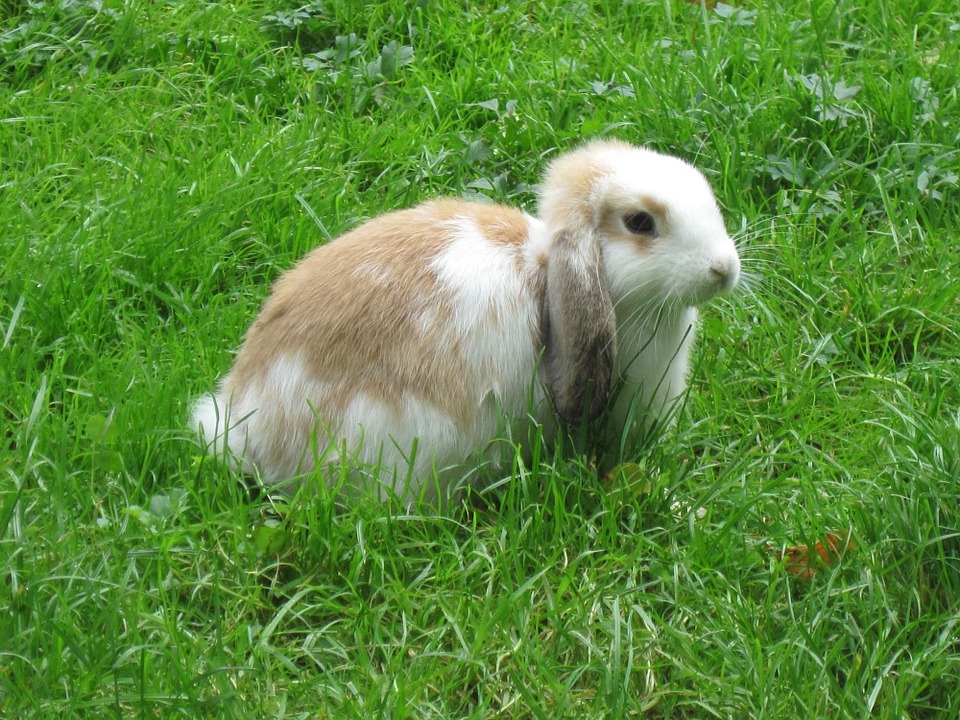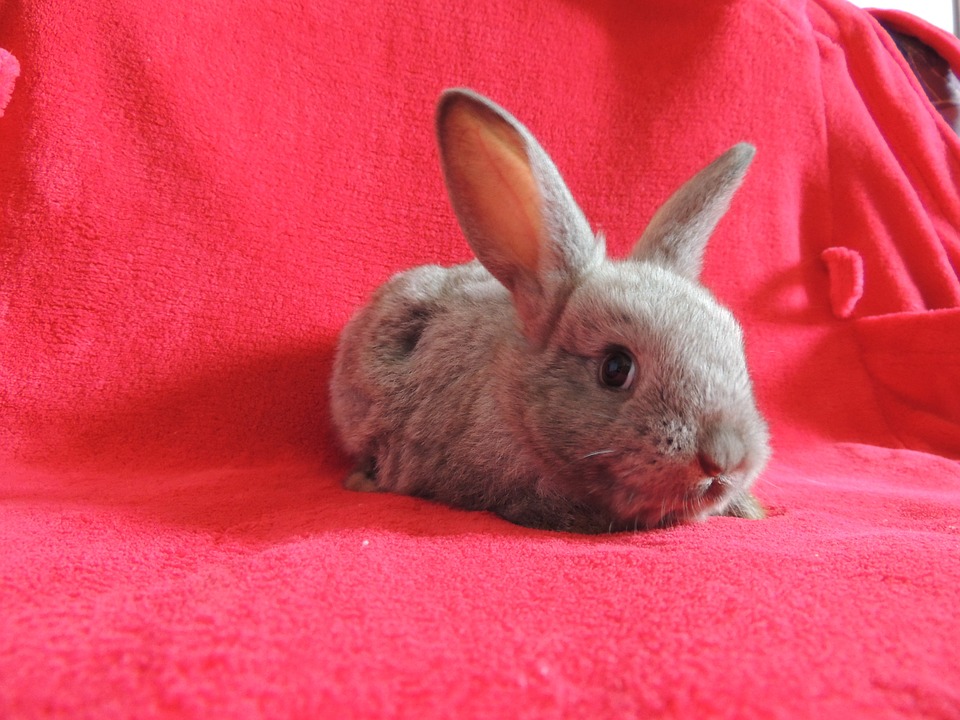Unveiling the secrets of rabbit sleep, this comprehensive guide explores their unique sleep patterns, the duration of their slumber, and how their nocturnal habits impact their daily lives. From their crepuscular nature to the significance of their sleeping positions, we delve into the fascinating world of bunny sleep.
Part 1: Understanding Rabbit Sleep Patterns

1.1 The Crepuscular Nature of Rabbits
Rabbits are crepuscular animals, meaning they are most active during the twilight hours – dawn and dusk. This unique characteristic sets them apart from diurnal (daytime) and nocturnal (nighttime) creatures, leading to a fragmented sleep schedule.
1.2 Why are Rabbits Crepuscular?
Their crepuscular behaviour is an adaptation for survival. During twilight, there is less predator activity and increased foraging opportunities, making these hours ideal for rabbits to venture out and find food.
1.3 The Impact of Crepuscularity on Sleep
Crepuscularity dictates that rabbits will primarily sleep during the day and night, with short bursts of activity interspersed throughout. This means their sleep schedule is divided into multiple naps rather than one long sleep session.
Part 2: The Intricacies of Rabbit Sleep Cycles

2.1 The Two Phases of Sleep: REM and Non-REM
Like humans, rabbits experience two distinct phases of sleep: rapid eye movement (REM) and non-REM sleep. During REM sleep, their brain activity increases, and they may twitch their noses, whiskers, or even their ears. Non-REM sleep is a deeper, more restful phase with reduced brain activity.
2.2 The Duration of Rabbit Sleep
On average, rabbits sleep for about 8 hours a day, distributed across numerous short naps. However, this duration can vary based on age, breed, health, and environmental factors.
2.3 Factors Influencing Sleep Duration
Age: Young rabbits, especially kits, require more sleep, often sleeping for up to 12 hours a day.
Breed: Certain breeds, like dwarf rabbits, may sleep slightly longer than larger breeds.
Health: Rabbits suffering from illness or stress may experience sleep disturbances.
Environment: A quiet, secure environment promotes sleep, while loud noises and disturbances can lead to fragmented sleep.
Part 3: Deciphering Rabbit Sleeping Positions
3.1 The Classic Huddle: A Sign of Security
Rabbits often sleep in a huddled position, tucking their head under their body and covering their nose with their paws. This posture offers warmth, security, and a sense of vulnerability, making them feel protected and safe.
3.2 The Spread-Out Stance: Comfort and Relaxation
In warm environments or when feeling relaxed, rabbits may sleep with their legs extended and ears flat. This position allows for better heat dissipation, promoting a comfortable sleeping experience.
3.3 The Sideways Slumber: Deep Rest and Trust
Some rabbits may sleep on their side, with their legs tucked under their body. This position is often associated with deep sleep and a sense of relaxation, indicating a high level of trust and comfort in their surroundings.
Part 4: The Significance of Napping in Rabbit Behaviour
4.1 Conserving Energy and Regulating Resources
Short naps allow rabbits to conserve energy and replenish their physical and mental resources. These brief periods of rest are vital for their overall well-being, allowing them to remain active and alert throughout the day.
4.2 Facilitating Social Bonding and Communication
Rabbits often sleep in close proximity to each other, particularly in social groups. This behaviour strengthens bonds and facilitates communication within the colony, helping to maintain social harmony.
4.3 Sensory Processing and Memory Consolidation
Even while sleeping, rabbits continue to process sensory information and consolidate memories. This process is crucial for their learning and development, enhancing their cognitive abilities.
Part 5: Creating a Safe and Comfortable Sleep Environment for Your Bunny
5.1 A Quiet and Secure Space
Provide your rabbit with a quiet, secure space to sleep, free from distractions and potential hazards. A designated sleeping area, such as a hutch or a bed, can provide a sense of security and encourage restful sleep.
5.2 Suitable Bedding and Nesting Materials
Offer your rabbit soft, absorbent bedding, such as hay or shredded paper, to create a comfortable sleeping environment. Avoid using materials that can be harmful or irritating, such as wood shavings.
5.3 Maintaining Optimal Temperature
Rabbits are sensitive to temperature changes. Ensure their sleeping area is well-ventilated and maintained at a comfortable temperature, avoiding drafts or extreme temperatures.
5.4 Minimizing Noise and Disturbances
Rabbits are easily startled and disturbed, so it's important to minimize noise and disturbances in their sleeping area. Avoid loud music, sudden movements, or disruptive activities near their sleeping space.
Part 6: Recognising Signs of Sleep Problems in Rabbits
6.1 Excessive Sleeping: A Potential Sign of Illness
If your rabbit is sleeping for significantly longer periods than usual, it could indicate an underlying health issue. This is particularly concerning if accompanied by other symptoms like lethargy, loss of appetite, or weight loss. Consult your veterinarian for a proper diagnosis and treatment plan.
6.2 Restlessness and Anxiety: A Sign of Discomfort
Rabbits that are constantly moving around or exhibiting signs of anxiety may be experiencing sleep disturbances. This could be due to stress, discomfort, or an underlying health condition.
6.3 Behavioural Changes: A Sign of Disrupted Sleep
A sudden change in your rabbit's behaviour, such as decreased appetite, lethargy, or increased aggression, could be a sign of sleep problems. Monitoring their behaviour closely and seeking veterinary attention when necessary is crucial.
Part 7: Addressing Sleep Issues in Rabbits
7.1 Identifying the Root Cause
To effectively address sleep problems, it's essential to determine the underlying cause. This may involve consulting your veterinarian and considering factors such as stress, illness, environmental changes, or a lack of enrichment in their daily routine.
7.2 Creating a Calming Environment
Provide your rabbit with a quiet, comfortable, and secure environment to help them relax and sleep better. Ensure they have access to plenty of hay and fresh water, and minimize noise and disturbances.
7.3 Enriching Their Daily Routine
Engaging your rabbit in stimulating activities, such as playtime, foraging, or puzzle feeders, can help reduce stress and improve their sleep quality. Provide them with mental and physical stimulation throughout the day to keep them happy and engaged.
7.4 Veterinary Consultation: When to Seek Professional Help
If you notice significant changes in your rabbit's sleeping habits or other concerning behaviour, consult your veterinarian for a proper diagnosis and treatment plan. They can help determine the underlying cause of the sleep problems and provide tailored advice for improving your rabbit's sleep quality.
Part 8: FAQs about Rabbit Sleep
Q1: How much sleep do rabbits need?
The average rabbit sleeps for about 8 hours a day, but this can vary depending on factors like age, breed, health, and environment.
Q2: Why do rabbits sleep in short bursts?
Rabbits are prey animals, so their short naps allow them to stay alert and respond quickly to danger.
Q3: Is it normal for rabbits to sleep during the day?
Yes, rabbits are crepuscular, meaning they are most active at dawn and dusk. They may sleep during the day, especially in quiet, dimly lit environments.
Q4: What should I do if my rabbit is sleeping excessively?
Excessive sleeping could indicate an underlying health issue. Consult your veterinarian for a proper diagnosis and treatment plan.
Q5: How can I create a safe and comfortable sleeping environment for my rabbit?
Provide a quiet, secure space with soft, absorbent bedding, maintain a comfortable temperature, and avoid exposing them to drafts or extreme temperatures.
Q6: How can I help my rabbit sleep better?
Enrich their daily routine with stimulating activities, provide a calming environment, and ensure they have access to plenty of hay and fresh water.
Q7: Are there any signs of sleep problems in rabbits?
Signs may include excessive sleeping, restlessness, anxiety, and behavioural changes. Consult your veterinarian if you notice any of these issues.
Q8: Can I help my rabbit sleep better if it's having trouble?
Yes, you can create a calming environment, enrich their daily routine, and consult your veterinarian for advice on addressing specific sleep problems.
Everyone is watching
-

Do Rabbits Lay Eggs? (The Surprising Truth)
OTHER TYPES OF PETSThis article will unravel the common misconception that rabbits lay eggs, exploring the fascinating world of r...
-

Can Rabbits Eat Grapes? A Guide to Safe Rabbit Treats
OTHER TYPES OF PETSThis comprehensive guide will explore the safety and suitability of grapes for rabbits, providing detailed inf...
-

What's a Group of Rabbits Called? (A Comprehensive Guide)
OTHER TYPES OF PETSThis article delves into the fascinating world of rabbits, exploring the various terms used to describe a grou...
-

Predators That Hunt Rabbits: A Guide to Natural Enemies
OTHER TYPES OF PETSI've always been fascinated by the circle of life, that delicate dance between predator and prey. Growing up ...
-

Are Rabbits Nocturnal Animals?
OTHER TYPES OF PETSThe question of whether rabbits are nocturnal animals is a fascinating one, with a surprisingly complex answer...
